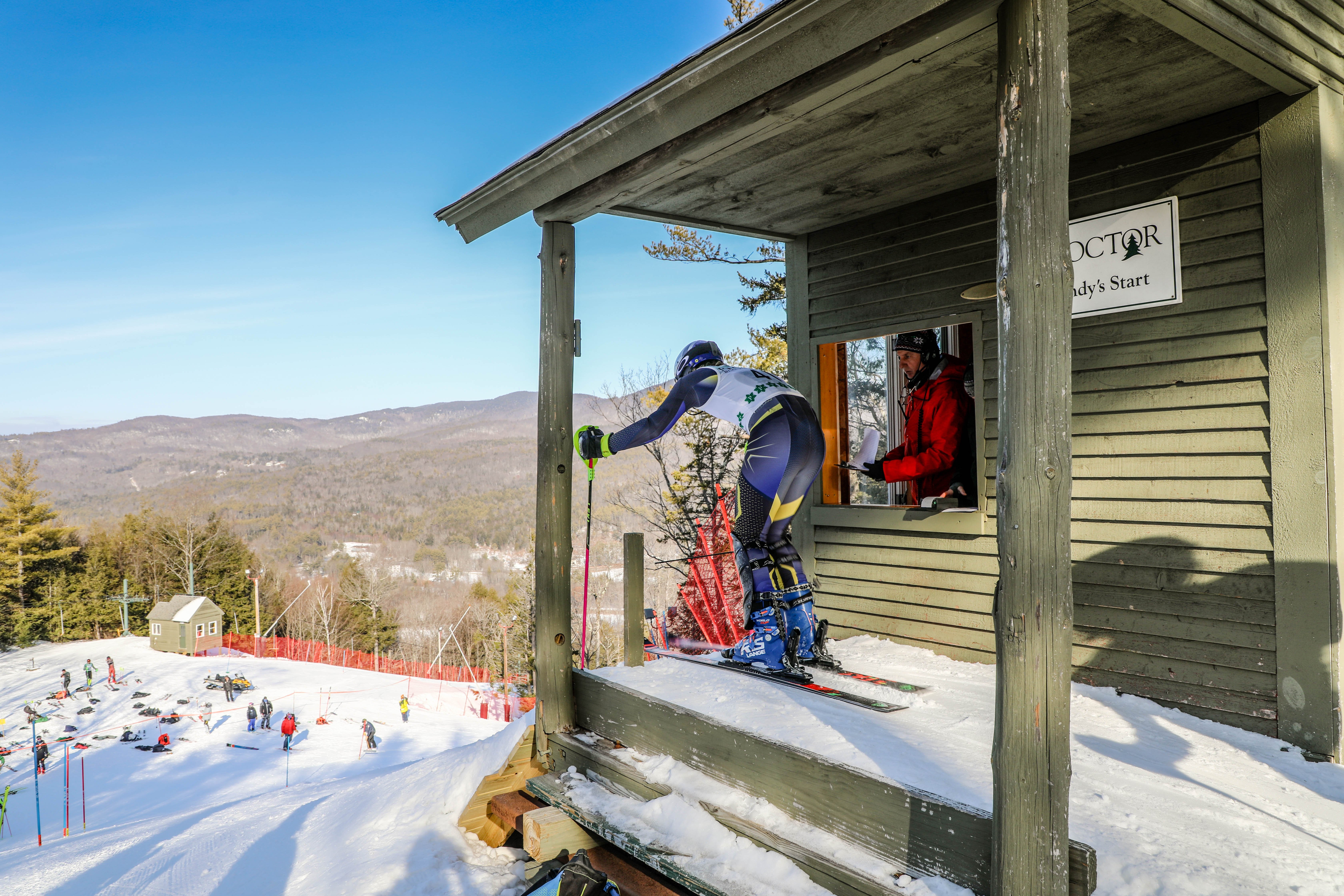In Michael Porter’s 1996 Harvard Business Review piece titled “What is Strategy”, he outlines the concept of strategic fit, the idea that an organization’s success is not determined by isolated attributes, but by the interconnectedness, or fit, of all its components. This notion of “fit” explains how Proctor’s unique combination of on-campus experiential learning opportunities, integrated academic support, authentic relationships among faculty and students, term-long off-campus programs, and high level arts and athletics all work in synergy to provide an unparalleled educational experience. The complexity of Proctor’s USSA/FIS Ski Program serves as a microcosm of how this concept of strategic fit operates within the greater Proctor model.
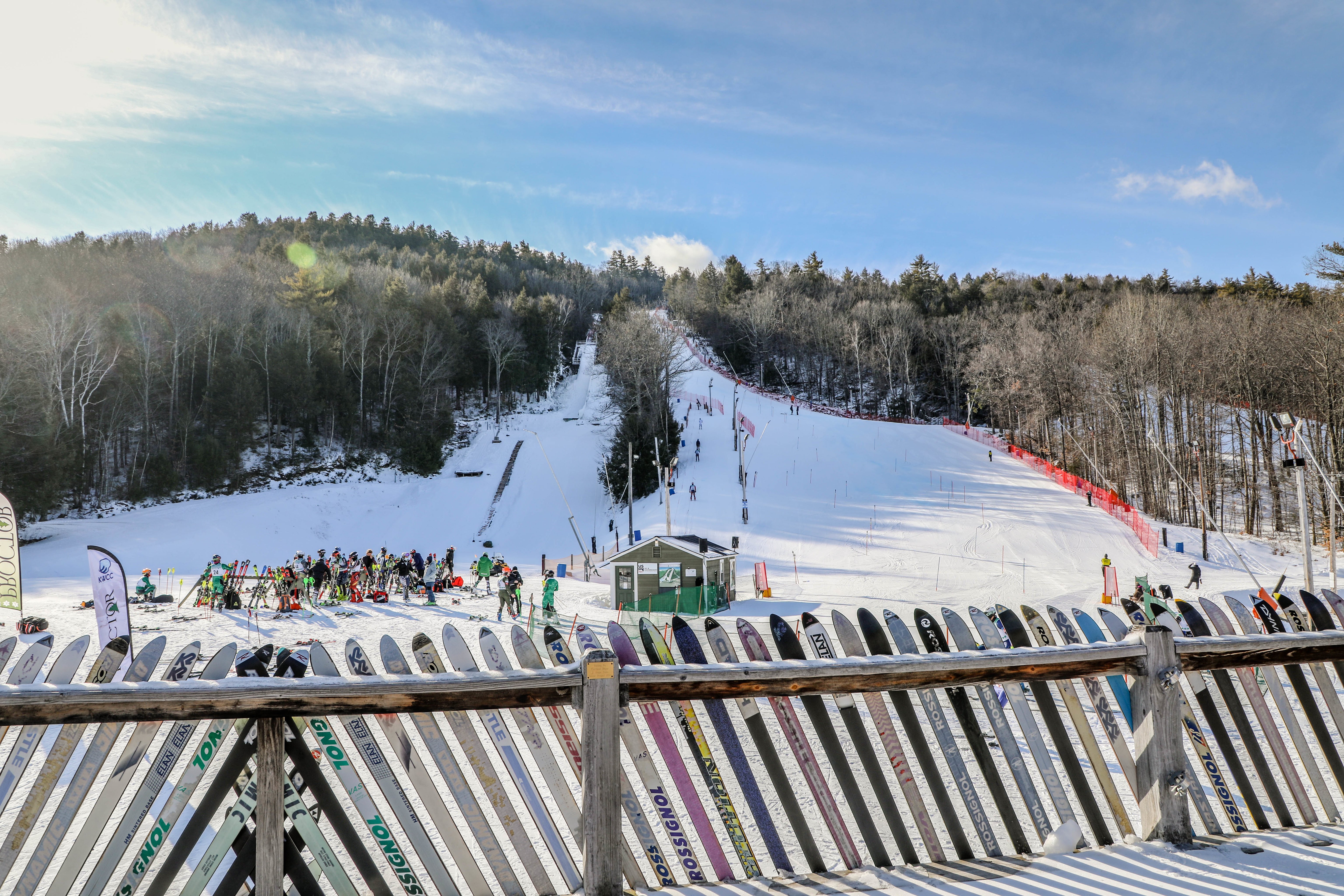
With 40 athletes in the program, a privately owned and operated FIS training/race venue on campus to run, three distinct programs (U19 boys, U19 girls, U16s) with coaches organizing individual training programs, races, and both on-snow and off-snow workouts, helping support students manage full academic loads and hosting a remarkable 20 USSA/FIS races at the Proctor Ski Area, all while managing Covid-19 protocols illustrates how this program can only operate when all of its components are firing on all cylinders. While the dedicated, talented coaching staff of Craig Leaman, Ashleigh Bolton, Mike Fairbrother, Sean Wheeler, Tom Sampson, and Jason Nelson took the lead this season, the work of Garry George '78 and his crew at the Proctor Ski Area, a list of parent volunteers too long to list in this post (but you know who you are!), logistical work of Morgan Salathe, race day management of Morgan and David Salathe, support and management by Director of Athletics Gregor Makechnie ‘90 and Head of School Mike Henriques, and support of Director of Health Services Sue Norris and our Health Center Staff all played an integral role in the program’s ability to pull off a full ski season this winter.
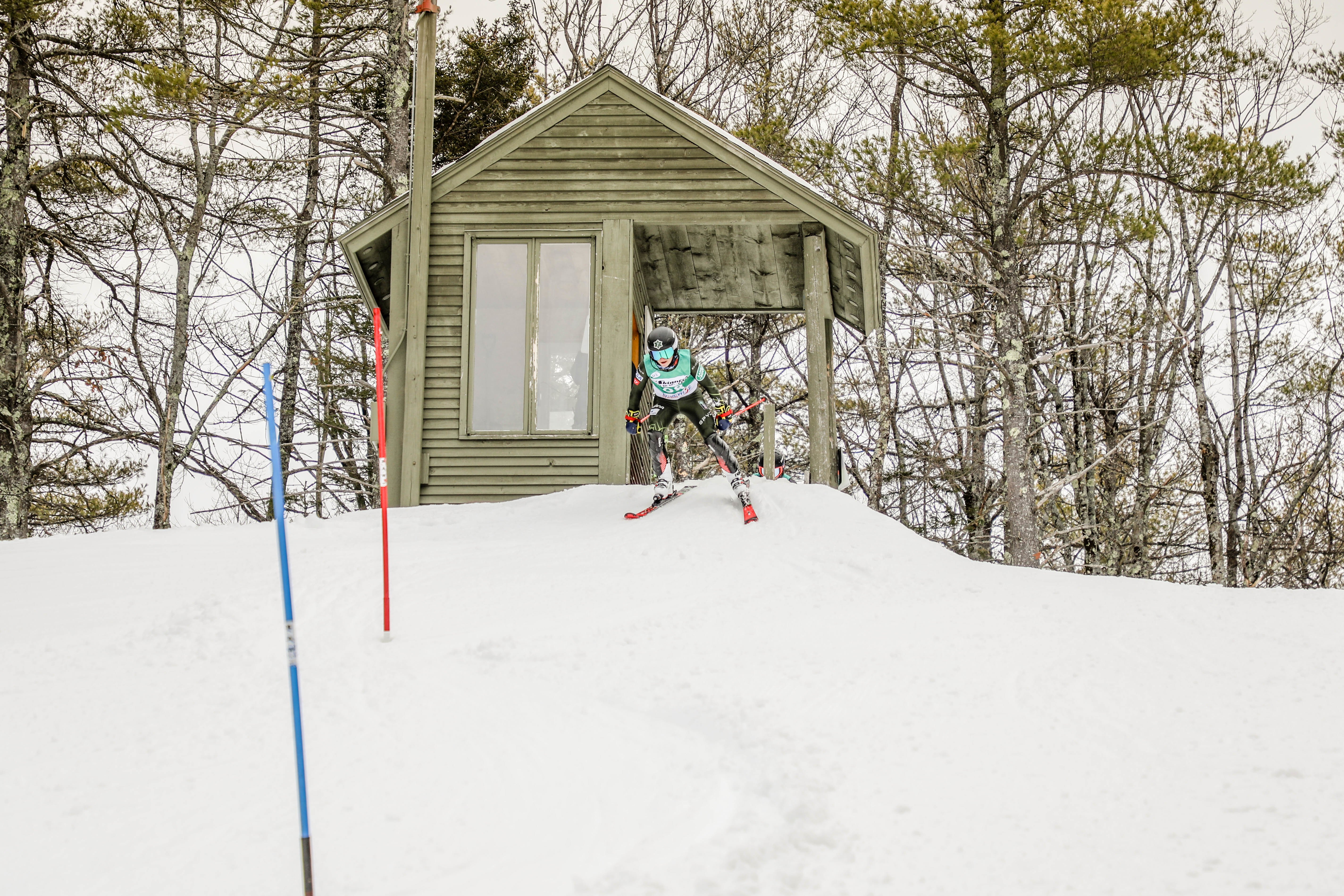
While Proctor’s USSA/FIS program trains and competes less than a mile from campus proper, the details and achievements of the coaches, athletes, parents, and support staff rarely find the public eye in the same way as those sports that compete on-campus. Below, coaches shared insights and reflections from the season.
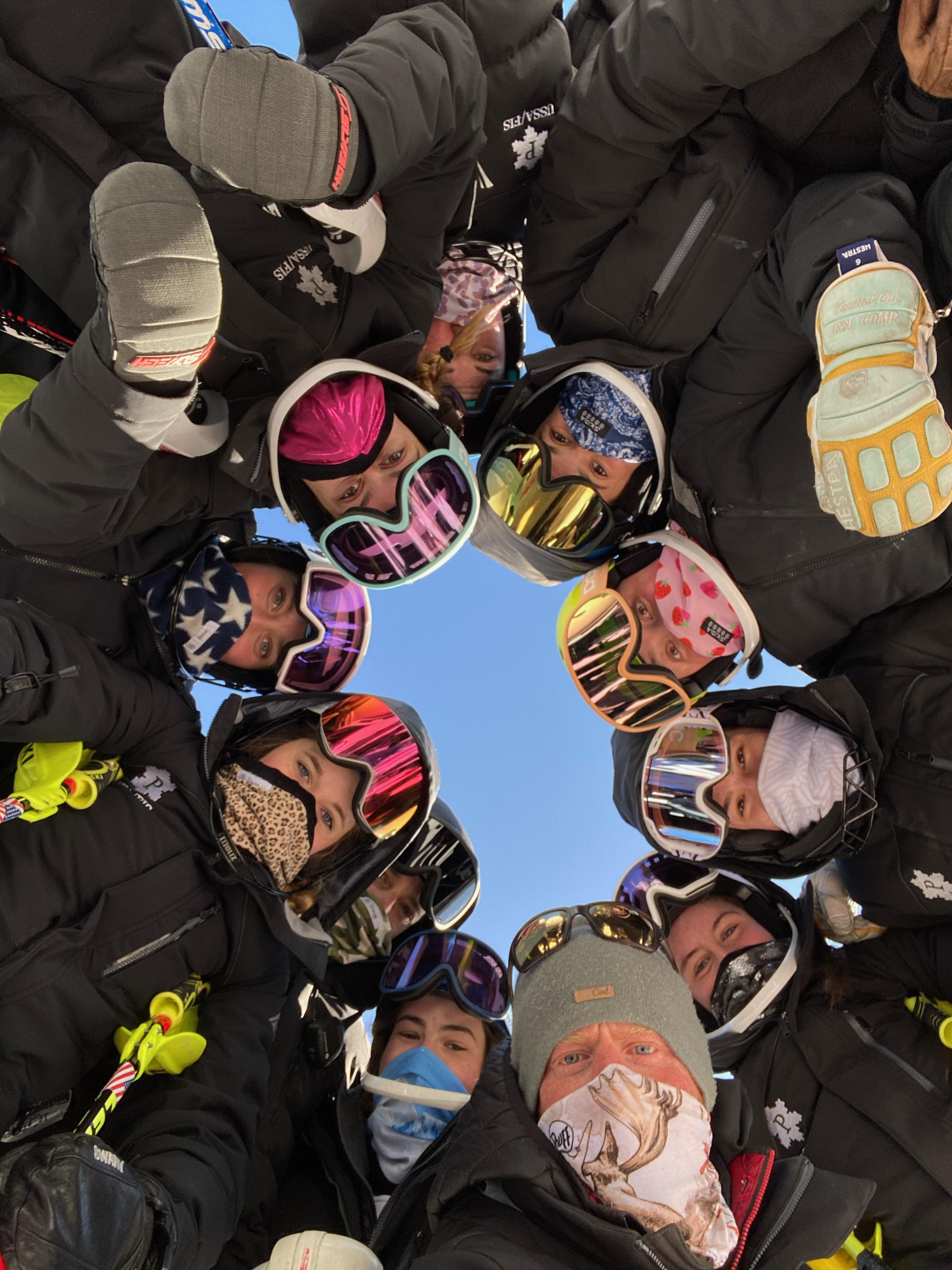
U19 Women Season Highlights
Coaches Craig Leaman and Tom Sampson
Beginning with our December training trip to Sunday River, we set the stage for a season like any other in Proctor’s history. We knew the months ahead would have a different cadence than years past, that we would have the best home training and race venue in New England, and that we had a talented, committed group of athletes to work with. We tested and challenged the athletes daily with drills, drill courses and visual cues that would help them understand where they needed to be within the course during this opening camp, and as the season progressed, and we got into the race season, we were quite prepared in comparison to our competition. The girls did a great job adapting to the environment all season.
Season Highlights
This season almost every athlete scored their best results to date. Junior Nationals were cancelled this year, but we had three girls who would have qualified (Maddie Semet '21, Emily Charleston '22, and Mayson Blondek '22). Junior Nationals qualifies eight athletes in the East and we had 3 of 8 of those spots. Additionally, Maddie qualified for US nationals, one of eight athletes in the east which is an incredibly competitive region. As a team here are some highlights we had for top finishes for the Divisional FIS races/series
- 26 Top 15 Finishes
- 17 Top 10 Finishes
- 8 Top 5 Finishes
- 1 Top 3 Finish
Regional and National Rankings:
- One 2002 birth year athlete is ranked 4th in the East and 11th in the Country.
- One 2003 birth year athlete is ranked 12th in the East.
- Two 2004 birth year athletes are ranked in the top 10 in the East, a separate 2004 birth year that is ranked 3rd in the East and 10th in the Country.
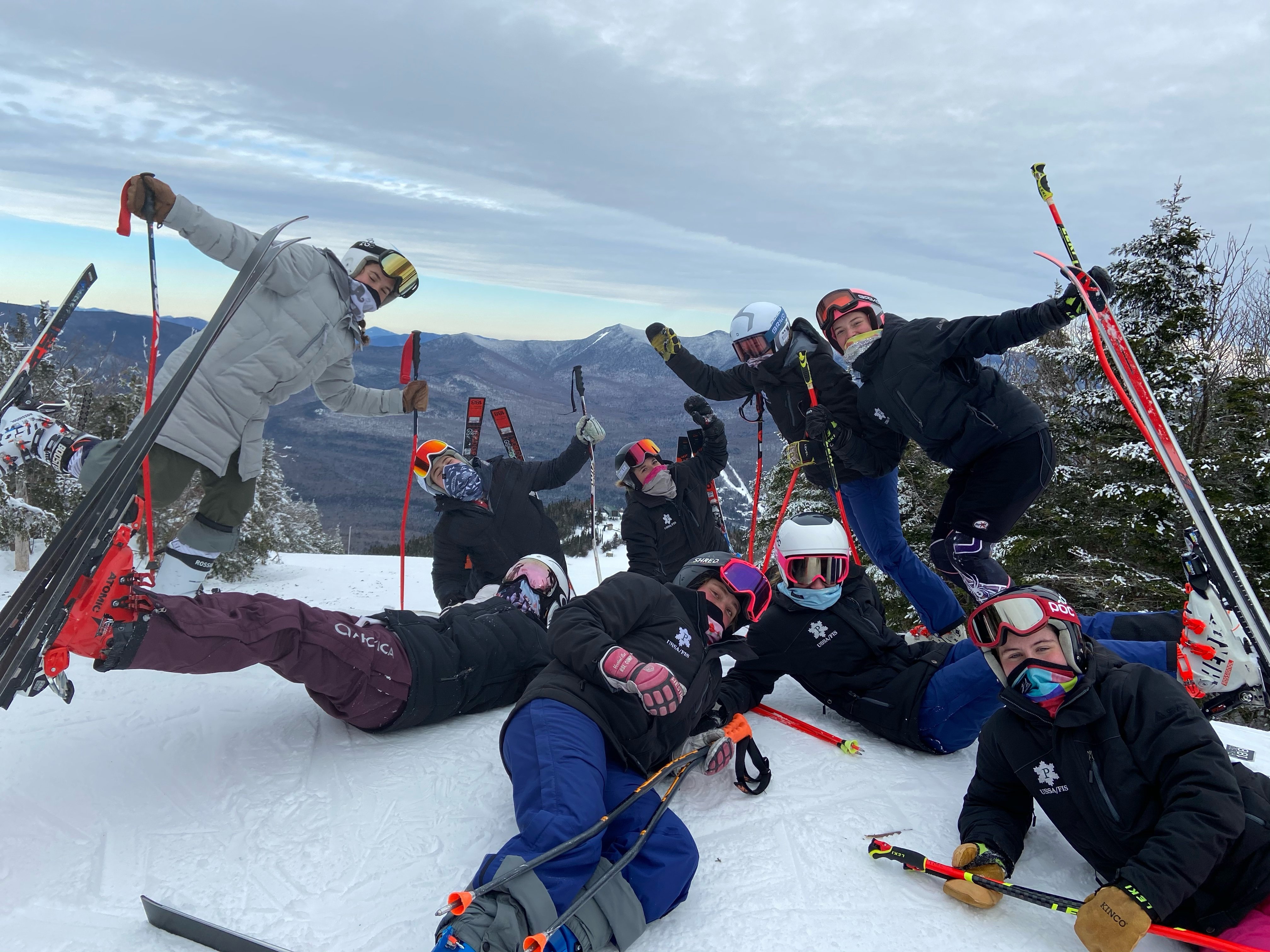
Aside from points and rankings, the real success of this season is that our athletes worked incredibly hard day in and day out, both on the hill and in the classroom. We had athletes surpass the point goals that they wanted to achieve this season, had athletes that changed their mentality to become more confident, and even had one of our athletes come back from ACL surgery and surpass her goals both mentally and physically, earning her best results in her career. These collective and individual results stemmed from having the girls support each other throughout the season. They cheered louder than any other team out there, and as a coach, it felt like it was a really tight knit family this season that really helped the girls feel comfortable with themselves and push toward success. When a program can combine intense training, achieve results, see progress, AND support each other along the way, it is a recipe for long-term success and growth.
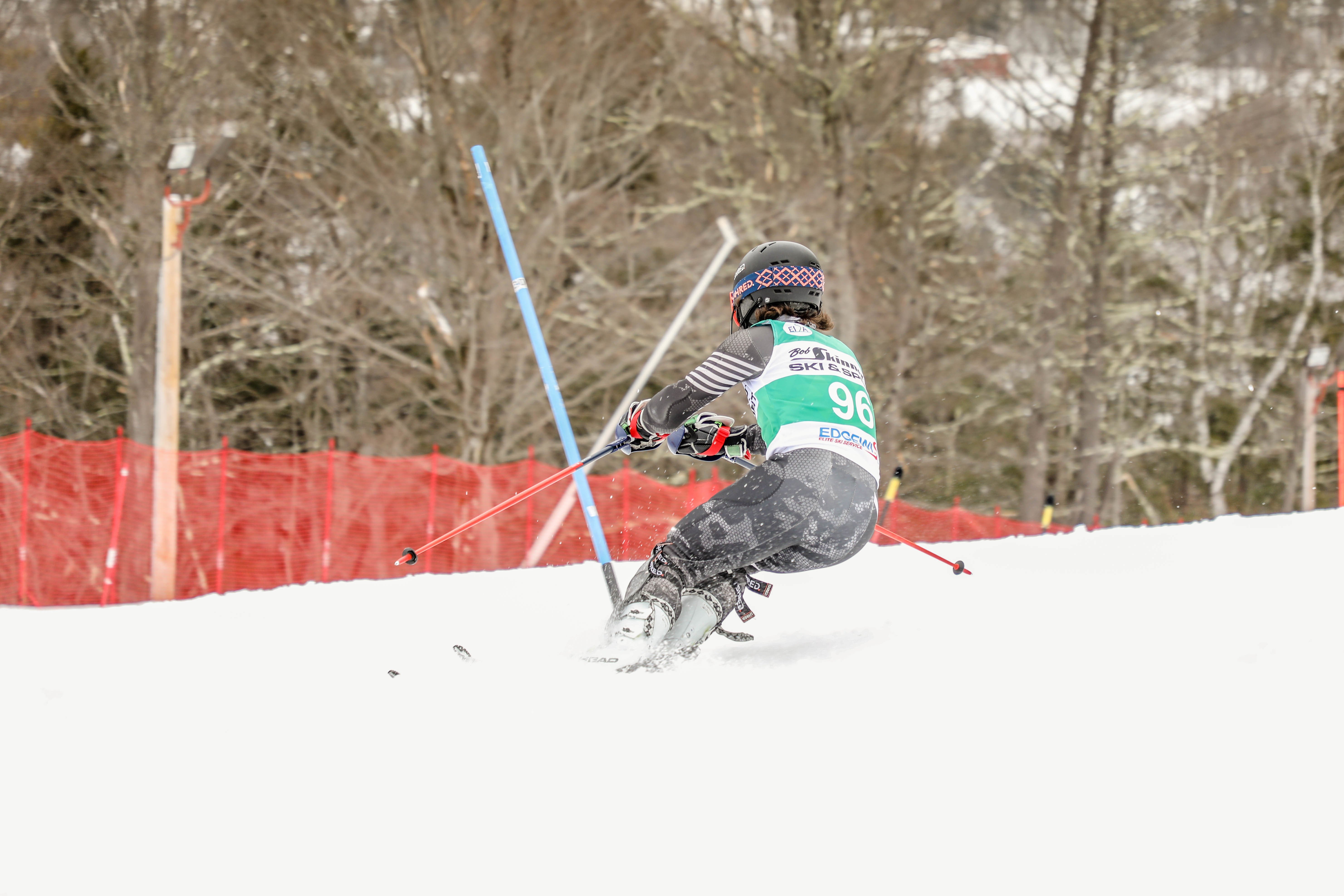
U19 Men Season Highlights
Coaches Mike Fairbrother and Sean Wheeler
Our camp atmosphere this past December in Sugarloaf brought our U16 + U19 Men's athletes and coaches together to create a strong team dynamic. We focused on the process and did not skip any steps in our progression- even though we felt as if we were getting a late start. Our men's coaching staff collaborated in developing a systematic approach to the technical and tactical needs of all ages and abilities within the men's team. We went into this camp with much uncertainty in terms of a new camp venue yet we adapted to the challenging landscape of a COVID world. Although it was stressful at times, we insulated our athletes from these stresses with tuning clinics, home cooked meals, structured study halls, video review, world cup review, on snow direction, and yoga for recovery.
Season Highlights:
- Many of our U19 boys began the year with well over 100 points in each discipline. Our students far exceeded their own expectations by reducing their point profile by as much as 100%, including athletes dropping points by 110, 68, 45, 41, 40, 35, and 20, respectively.
- NHARA Division's campaign to provide quality racing opportunities allowed Proctor’s athletes to compete with low field sizes, good snow surfaces (thanks to Garry for our 12 Slaloms at Proctor), and a high concentration of New Hampshire Division I colleges. Dartmouth, UNH and Plymouth State saw the value in the intrastate competitions of New Hampshire, thus providing Proctor students with weekly opportunities to race "head-to-head" with Division I carnival athletes and we closed the gap.
- One of the most powerful parts of our season was having our alumni return to train with our team. Robert Gillis ‘20, Chris Golden ‘20, Ben Charleston ‘20, Andrew Rusis ‘19 and others have improved their profiles for having trained with our U19 program. This exposure elevated our students' performance to the next level. Weekly exposure to the next level college athlete not only pushes our students but it has fostered a mentorship that helps our students learn, grow, and mature.
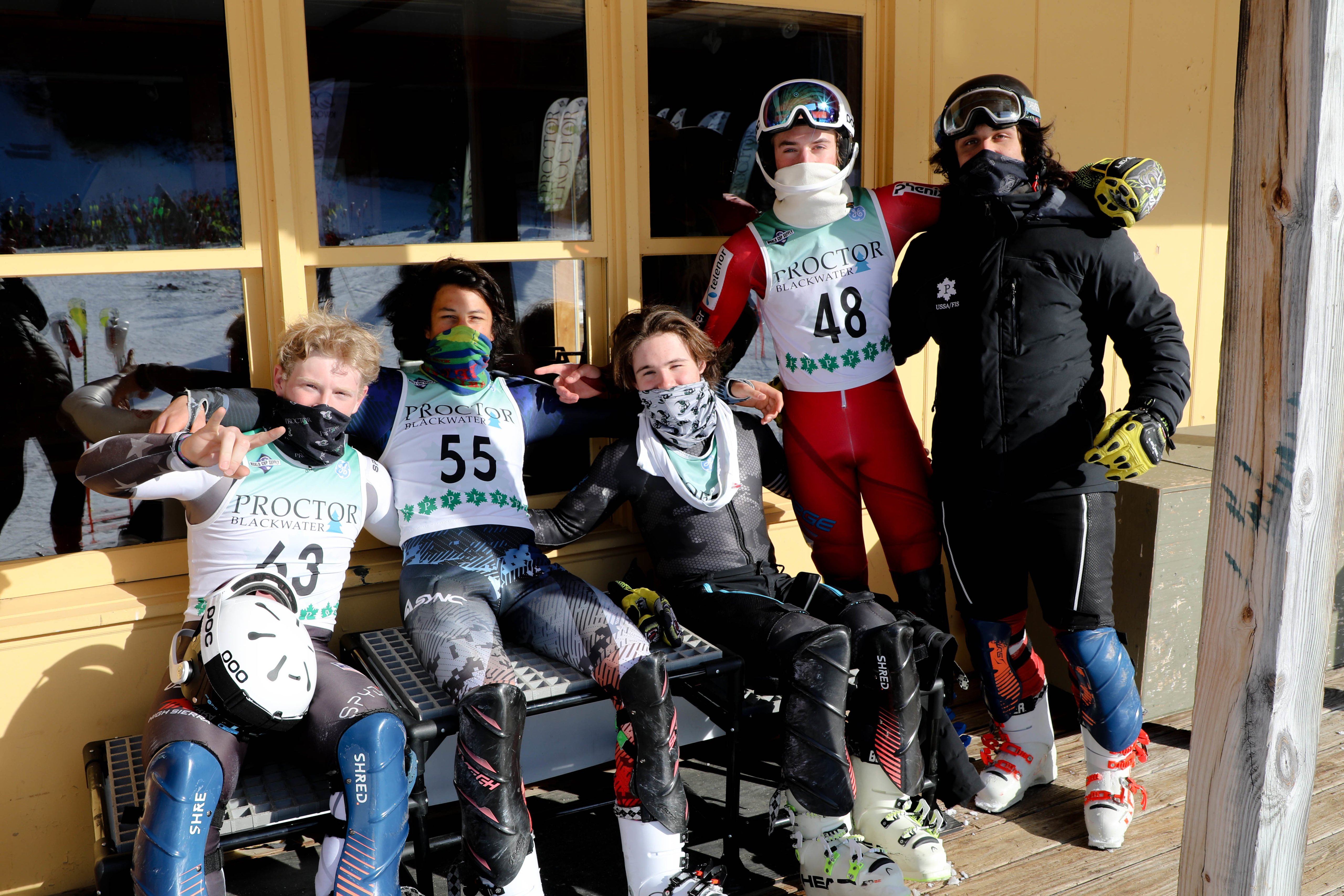
Our team dynamic has been nurtured to create a strong team culture that pushes and challenges the limits of our students’ abilities. We have planned training for the first time at Proctor this April and have organized equipment to test from Head, Volki, Rossignol, Nordica, and others. Our athletes will have access to the best equipment suited to their skiing style and ability. Following our athlete:coach exit interviews on April 1, we will begin the goal setting process, establishing fitness goals in 4-8 week phases in preparation for our summer training camps. These individual athlete management plans will inform the content and strategy for each of our camps this summer, allowing us to work on individual and collective weaknesses during the 40-55 days of on-snow training we are planning between April 1 and December 1.
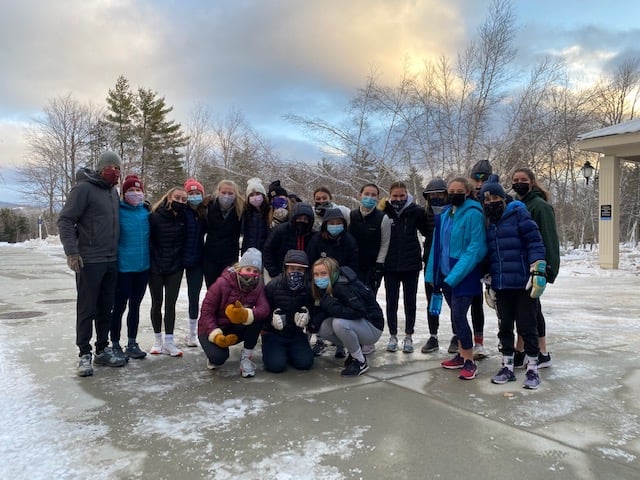
U16 Season Highlights
Jason Nelson and Ashleigh Bolton
During a complicated season, Proctor’s seventeen U16 athletes trained in a split system, mixing disciplines, genders, maximizing individual athlete development. Due to field maximums for each race, our U16s had limited race opportunities this winter. Despite these challenges, training camps ran smoothly when they were all-gender as we could collaborate with no pressure for competition and prepping for races. This group of athletes worked through adversity, a complicated Covid-19 landscape, and came together over the course of the season to set the stage for a spring, summer, and fall of hard work leading into next season, a season that we all hope will look significantly more “normal” for our U16 athletes.
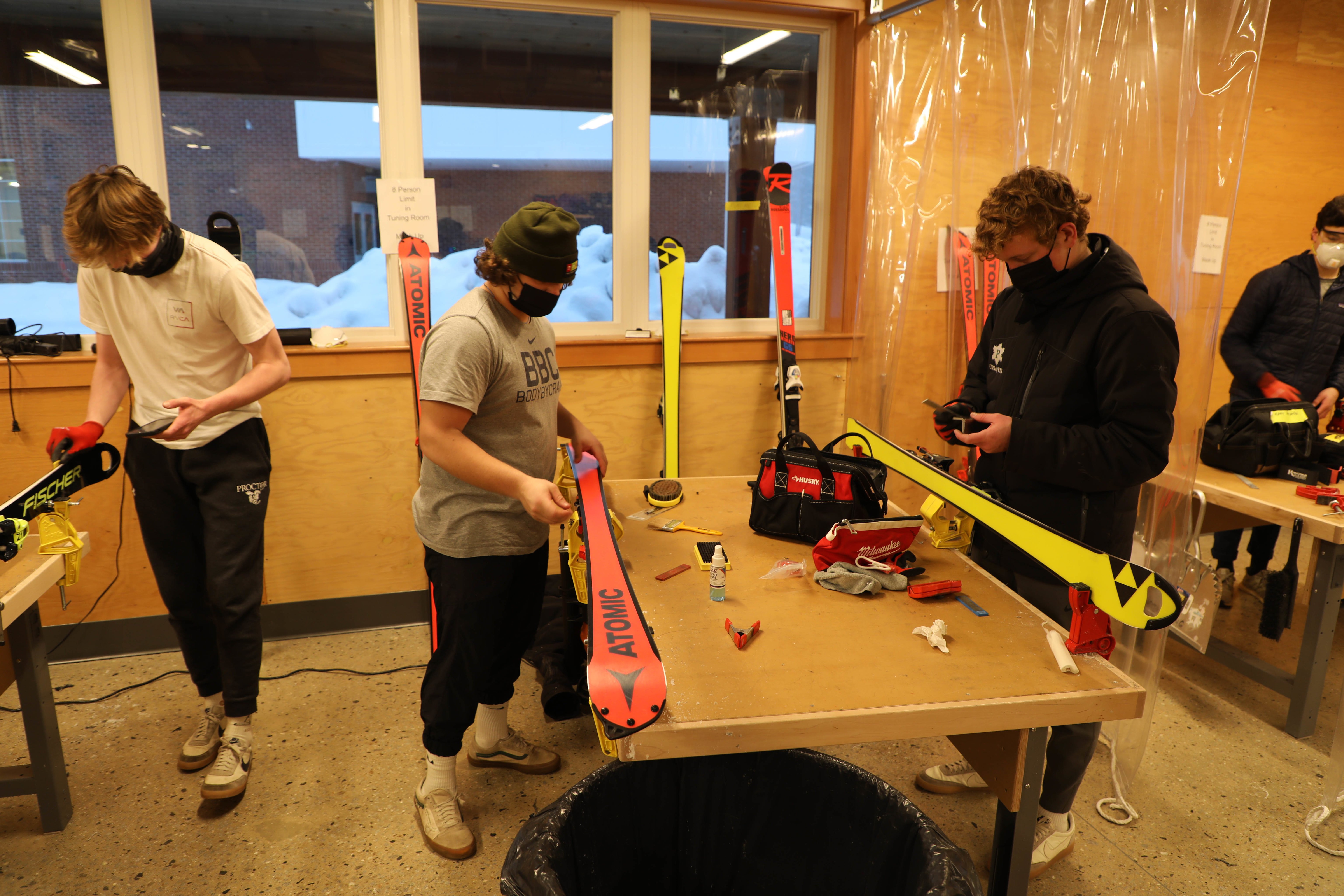
Season Highlights:
- All athletes qualified for the Lafoley Champs.
- Charlie Seavey '24 was the U16 Tech Cup Overall champion.
- During a normal year we would have qualified 6 male athletes to the Regional Championships.
- Our first year boys made great improvements as well with Luke Goff '24 getting the "hard charger" in some races and even winning some runs.
- Annika Regan '24 earned podium results in the Slalom NH Qualifiers.
- 5 male athletes and 2 female athletes qualified for the U16 Regional Training Program.

